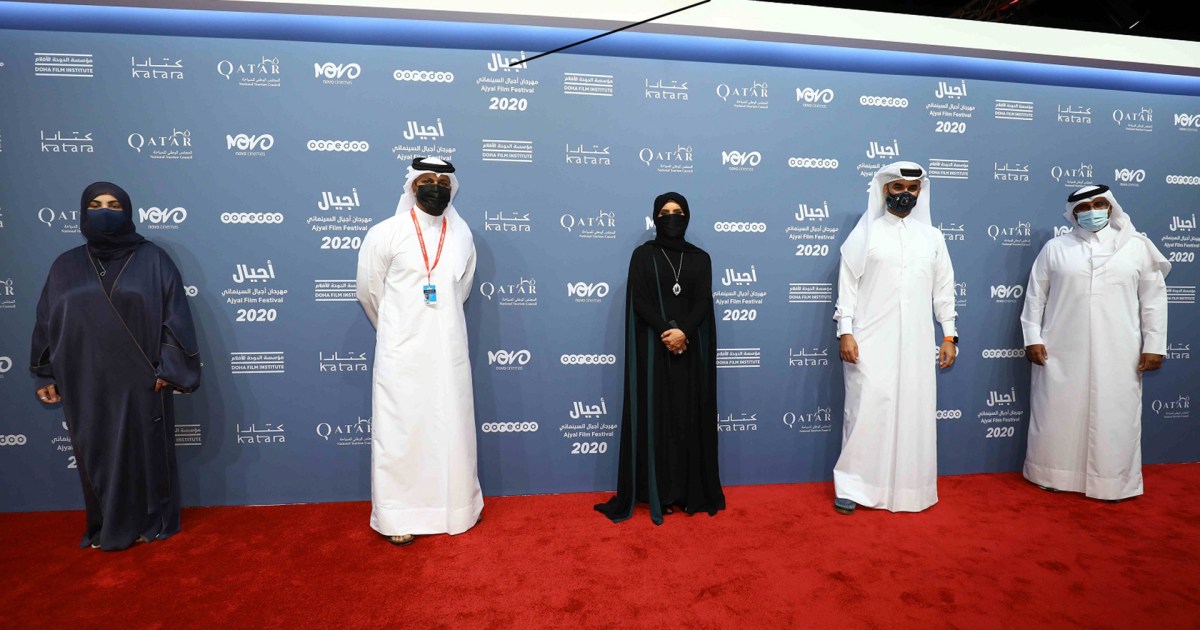This is the first time that the young Omar Tolba has been able to watch films in an influential language that addresses his inner self, as he is a deaf boy who is fond of cinema, but watching any movie in the past, the image and the dialogue written below the scenes had to be separated from important parts of the cinematic work It has its impact, like movement, music and sound effects.
In his opinion, his ability to deconstruct the pulse, rhythm and music of the film has filled a big gap during viewing, considering that the cinematic picture does not divide its expressions, but rather complements each other in harmony and flow.
At the Ajyal Film Festival in Doha, a selected group of films were programmed for Qatari filmmakers, whose voices and effects are translated into sign language in parallel with the presentation, an experience that was well received by the audience, by virtue of that it fulfilled the desires of all segments of society and took into account their rights and needs, and brought the cinematic scene to Its extent.
Another category for which the festival is given parallel attention is the visually impaired group, who can now follow the cinematic films of their choice in listening form by specialists in the transmission of movie scenes, and they have the ability to draw mental pictures of the recipient with special skills, and who are given the ability to express their opinions In those works.
As part of the list of shows dedicated to this category, distinctive short films supported by the Doha Film Institute will be shown, including the film "Ya Hoota" directed by Abdel Aziz Youssef and Latifa Al Darwish, "Beit Bayut" directed by Mayar Hamdan, and "In the Elevator" by Hamida Issa.
Promising experience
This is not the first time that the festival's management has taken this decision, which guarantees the right to watch films in all their details, and their evaluation by the various groups of society and their differences. Rather, it remained a bet that it saw as a gain to the festival’s image and raise its value in the artistic arena.
In this context, Fatima Al-Rumaihi, Director of the Ajyal Film Festival and CEO of the Doha Film Institute, believes that by meeting the needs of the audience according to their different abilities, it was possible to overcome invisible barriers and make cinema available to all viewers.
She told Al-Jazeera Net, that the festival, within an integrated program, which is the first of its kind in the region, was able to gather audiences in a space of creativity, using cinema as a bridge for understanding and dialogue, and also made us celebrate the similarities between us regardless of our differences.
The Institute of Translation Studies at the College of Humanities and Social Sciences at Hamad Bin Khalifa University translated the festival's vision for this experience, by virtue of the partnership between the two sides in multiple disciplines.
Challenges on the way
With a quick glance, it appears that cinematic and dramatic productions in the Arab world have always neglected these categories, and did not take into account their integration into society through the cinema gate, with the exception of some recent experiences, especially in Egypt, which began to think about ways to develop sign language more effectively in cinematic works.
There have also been calls for the inclusion of this category in all stages of the film industry and to provide them with the techniques of script writing, filming and directing, and to qualify them for use in the development of such projects in the future, and to transfer them to the role of the initiator and actor in the film field.
However, this type of translation faces many challenges, related to the difficulty that the sign language translator endures in conveying the dialogue with high professionalism, and controlling the rhythm of the film with its different scenes.
The translator specializing in sign language at Al-Jazeera, Muhammad Al-Binali, believes that translating films into sign language can succeed to a large extent in expressing the content of the film and its message, but a great effort falls on the translator, who must transmit every movement and whisper, even if it is the sound of a door Or the sound of the air, and this is what he finds very arduous.
He told Al-Jazeera Net that short films can be a material for creativity directed at this category, but means must be devised that are more supportive of cinema and challenge the current reality.
In light of the low numbers of specialists in this genre in the Arab world and their being limited to objective translation, the percentage of those who have a cinematic culture and a descriptive and aesthetic taste to express the sound effects and the rhythm of cinematic dialogue and accurately convey it remains a very small percentage, and the contrast of cinematic cultures between the Arab and Western environments also poses other challenges. At the level of description and payloads of the scenario and scenes and dealing with them.
In its coming sessions, the festival is eager to allocate a special cinema for this group with multiple needs, from them and to them, and perhaps the most capable of conveying their concerns and expressing their view of various community issues more closely.

